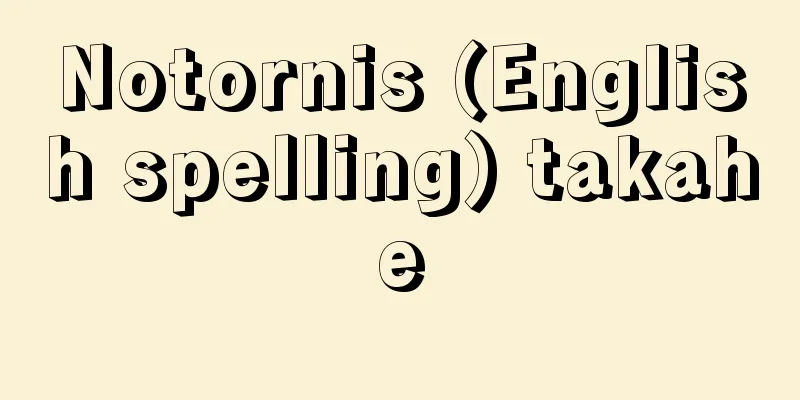Seiri Koga

|
A Confucian scholar in the mid-Edo period. Born on October 20, 1271 (Kan'en 3). A native of the Saga domain. Father of Kokudo. His given name was Boku, his pen name was Junpu, and his pseudonym Fugen. He studied in Kyoto and became a disciple of Fukui Keisai (?-1801) and Nishiyori Seisai (1702-1797). He also became friends with Bito Jishu and Yori Shunsui in Osaka, and came to respect Zhu Xi's teachings. After returning home, he participated in domain administration and was involved in the founding of the domain school (Kodokan) and its teachings. In 1791 (Kansei 3), he accompanied his feudal lord to Edo, where he became the first feudal lord to lecture on classical Japanese classics at Shoheiko Academy, and as a Confucian scholar for the shogunate, he promoted education and governance together with Hayashi Saishu, Shibano Ritsuzan, and Bito Nishu, and together with Kuriyama and Nishu, he was known as one of the "Three Doctors of the Kansei Era." In 1811 (Bunka 8), he and Saishu received Korean envoys on Tsushima Island. Seiri was a Confucian scholar who continued the ban on other schools of learning, but he disliked the rigid Neo-Confucianism of Ansai, and his studies were broad-minded and he did not neglect poetry or prose. He was also a skilled calligrapher. However, he was not simply a literary scholar, but aimed to cultivate himself and govern people, and was also skilled in administration and education. He died on May 4, 1814 at the age of 68. His works include the "Seiri Shusho" (Seiri Bunshu), 3 volumes in 10 volumes (1819) and others. [Makoto Kurosumi May 19, 2016] [References] | | | | |Source: Shogakukan Encyclopedia Nipponica About Encyclopedia Nipponica Information | Legend |
|
江戸中期の儒者。寛延(かんえん)3年10月20日生まれ。佐賀藩の人。穀堂(こくどう)の父。名は樸(ぼく)、字(あざな)は淳風(じゅんぷう)、別号は復原。京都に遊学して福井敬斎(ふくいけいさい)(?―1801)、西依成斎(にしよりせいさい)(1702―1797)に入門、また大坂で尾藤二洲(びとうじしゅう)、頼春水(らいしゅんすい)と親交、朱子学を尊崇するようになった。帰郷後、藩政に参与し、藩校(弘道館(こうどうかん))の創設とその教授にもあたった。1791年(寛政3)藩侯に従って江戸に出、藩臣として初めて昌平黌(しょうへいこう)で経学を講じ、さらに幕府の儒官として林祭酒(はやしさいしゅ)、柴野栗山(しばのりつざん)、尾藤二洲らと学政を振興し、栗山、二洲とともに「寛政の三博士」と称された。1811年(文化8)には祭酒とともに対馬(つしま)で朝鮮の通信使に応接した。 精里は、異学の禁を継ぐ儒官であったが、闇斎(あんさい)学の固陋(ころう)な朱子学は嫌い、その学は博洽(はっこう)、詩文も軽視しなかった。能書でもあった。しかし単に文人儒生ではなく修己治人を旨として行政、教育にも手腕があった。文化(ぶんか)14年5月4日68歳で没した。『精里集抄』(精里文集)全3集10巻(1819)ほかがある。 [黒住 真 2016年5月19日] [参照項目] | | | | |出典 小学館 日本大百科全書(ニッポニカ)日本大百科全書(ニッポニカ)について 情報 | 凡例 |
>>: Wu Ge Xiqu (English: Wú gē Xī qǔ)
Recommend
Country leader - Kokusho
〘Noun〙 A lower-ranking official who was establishe...
Inner school - Uchikou
〘 noun 〙 The act of a proofreader at a printing co...
cholestasis
In the blood of a normal person, serum bilirubin ...
Allomorph
…In this way, morphemes can take different forms ...
Kim Changjo - Kim Changjo
...It is a Korean musical form for solo instrumen...
Aspirin - Aspirin (English spelling)
A typical non-pyrine antipyretic analgesic also k...
Utagawa Toyokuni - Utagawa Toyokuni
A late Edo period ukiyo-e artist. A senior discip...
King of Wakanoge Futamata - King of Wakanoge Futamata
A person who is said to be the son of Emperor Ojin...
Gothic realism
...Moreover, it seeks to explain all perceptible ...
Kan Bo-zhou; K`an Po-chou
King of Gaochang, a state in the Turfan region of ...
Anchor block
...In Japan, suspension bridge construction techn...
Amelia Bloomer
…In the 19th century, as women's social advan...
People's Library - Jinminbunko
A literary magazine. First published in March 1936...
Family myth
…In contrast to the so-called external family, wh...
SST - SST
A transport aircraft that travels at supersonic sp...









